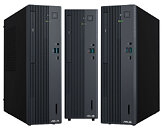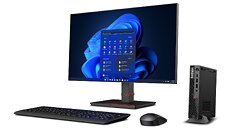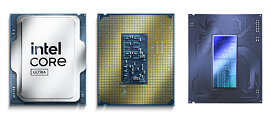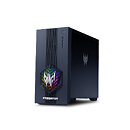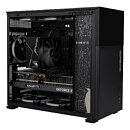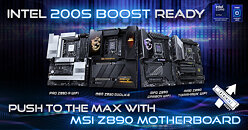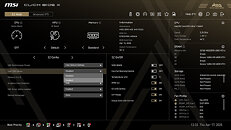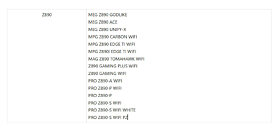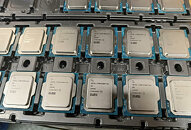
ASUS Announces ExpertCenter P500 SFF, a Compact Desktop PC
ASUS today announced ASUS ExpertCenter P500 SFF (P500SV), an 8.6-liter compact desktop PC designed to redefine value and performance for small businesses. With the innovative compact air cooler thermal design and powered by an up to Intel Core i7 processor, P500 SFF unleashes up to 45 W TDP. Thanks to its enhanced thermal design, it also delivers whisper-quiet performance, generating just 30.8 dB even in Performance mode - or as serene as rustling leaves. This makes it ideal for focused, professional environments.
Security is paramount with ExpertCenter P500 SFF, so it's backed by the reassurance of multiple ASUS ExpertGuardian protections. This powerhouse meets commercial-grade standards with a NIST SP 800-155-compliant BIOS, while ASUS assures at least five years of BIOS and driver updates to protect critical data. Enhanced with ASUS AI ExpertMeet, ExpertCenter P500 SFF revolutionizes virtual meetings through advanced AI tools like real-time translation and automated summaries, making collaboration seamless. In short, ExpertCenter P500 SFF sets a new standard for small-business desktops, combining power, security and efficiency with incredible value - ready to empower professional excellence.
Security is paramount with ExpertCenter P500 SFF, so it's backed by the reassurance of multiple ASUS ExpertGuardian protections. This powerhouse meets commercial-grade standards with a NIST SP 800-155-compliant BIOS, while ASUS assures at least five years of BIOS and driver updates to protect critical data. Enhanced with ASUS AI ExpertMeet, ExpertCenter P500 SFF revolutionizes virtual meetings through advanced AI tools like real-time translation and automated summaries, making collaboration seamless. In short, ExpertCenter P500 SFF sets a new standard for small-business desktops, combining power, security and efficiency with incredible value - ready to empower professional excellence.


